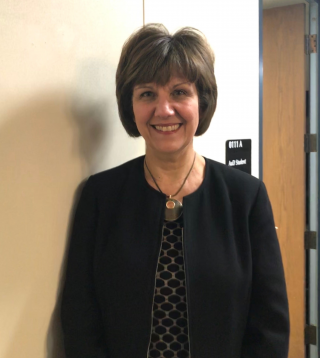
The Impact of Aging, Hearing Loss and Cognitive Burden on Health Literacy on Older Adults
Activity description
Growing evidence demonstrates an association between hearing loss and the development of declining cognitive function, health literacy, psychosocial well-being and overall quality of life in older adults. This activity will discuss the association between hearing loss and cognitive burden, as well as the potential impact of untreated hearing loss. It will provide communication and management techniques for caregivers to accommodate changes in the cognitive status of those with hearing loss, as well as tools and strategies that are recommended by the Hearing Loss Association of America (HLAA) and how these can be put into practice.
Provided by
This activity is provided by Optum Health Education and Healthcare Transformation UnitedHealth Group Alliances.
Commercial support
No commercial support was received for this activity.
Required hardware/software
To view this activity, you will need Internet Explorer 7.0+ or Firefox 3.0+ with Windows Media Player 9+, RealPlayer 12+ or Adobe Flash Player 9+. Be sure to disable any pop-up blocking software prior to beginning this activity.
Target Audience
This activity is designed to meet the educational needs of case managers, nurses, nurse practitioners, pharmacists, pharmacy technicians, PAs, physicians, psychologists, social workers and other health care professionals (HCPs) who care for the older adult population.
Learning Objectives
At the end of this educational activity, participants should be able to:
- Explore the association between hearing loss and cognitive burden.
- Explain how the different stages of hearing loss impact cognitive function and health literacy.
- Identify the potential impact of untreated hearing loss on indirect health, psychosocial well-being and overall quality of life.
- Describe communication and management techniques for caregivers to accommodate changes in the cognitive status of those with hearing loss.
- Discuss tools and strategies recommended by the Hearing Loss Association of America (HLAA) and how these can be put into practice.
Presenter Lisa Rickard, AuD, CCC-A
Lisa Rickard, AuD, CCC-A
Assistant Clinical Professor
Department of Hearing and Speech Sciences
University of Maryland
College Park, MD
About the presenter
Dr. Lisa Rickard is a licensed audiologist and clinical educator with over 30 years of experience. She earned her Doctorate in audiology from the University of Florida. She specializes in the evaluation of hearing loss in adults and rehabilitation via the use of hearing aids, wireless accessories and hearing assistive technology. She is especially interested in helping her patients and their communication partners manage the impact of hearing loss on relationships, cognition, health outcomes and quality of life in general.
Activity planners
Sarah Chart, RN
Senior Director
OptumHealth Education
Eden Prairie, MN
Rebecca Gleason, RN, CCM
Activity Manager
OptumHealth Education
Eden Prairie, MN
Disclosures of relevant financial relationships
In accordance with the ACCME Standards for Commercial SupportSM, OptumHealth Education requires all those in the control of activity content to disclose their relevant financial relationships. An individual has a relevant financial relationship if such person (or his/her spouse/partner) has a financial relationship in any amount occurring in the last 12 months with a commercial interest whose products or services relate to the activity content.
OptumHealth Education ensures that the content is independent of commercial bias.
Ms. Chart and Ms. Gleason have indicated that they are employees of and own stock in UnitedHealth Group.
The remaining activity faculty or planners have no financial relationships to disclose.
Method for calculating CE credit
CE credit was calculated by the complexity of content.
Accreditation statement In support of improving patient care, this activity has been planned and implemented by Optum Health Education and Healthcare Transformation UnitedHealth Group Alliances. Optum Health Education is jointly accredited by the Accreditation Council for Continuing Medical Education (ACCME), the Accreditation Council for Pharmacy Education (ACPE) and the American Nurses Credentialing Center (ANCC), to provide continuing education for the health care team.
In support of improving patient care, this activity has been planned and implemented by Optum Health Education and Healthcare Transformation UnitedHealth Group Alliances. Optum Health Education is jointly accredited by the Accreditation Council for Continuing Medical Education (ACCME), the Accreditation Council for Pharmacy Education (ACPE) and the American Nurses Credentialing Center (ANCC), to provide continuing education for the health care team.
Credit designation statements This activity was planned by and for the health care team, and learners will receive 1.00 Interprofessional Continuing Education (IPCE) credits for learning and change.
This activity was planned by and for the health care team, and learners will receive 1.00 Interprofessional Continuing Education (IPCE) credits for learning and change.
Nurses
The participant will be awarded up to 1.00 contact hour(s) of credit for attendance and completion of supplemental materials.
Nurse practitioners
The American Academy of Nurse Practitioners Certification Program (AANPCP) accepts credit from organizations accredited by the ACCME and ANCC.
Physicians
Optum Health Education designates this enduring activity for a maximum of 1.00 AMA PRA Category 1 Credit(s)™. Physicians should claim only the credit commensurate with the extent of their participation in the activity.
PAs
The American Academy of Physician Assistants (AAPA) accepts credit from organizations accredited by the ACCME.
Case managers
The Commission for Case Manager Certification has approved this program for a maximum of 1.00 clock hours for Certified Case Managers (CCM).
Psychologists
Optum Health Education is approved by the American Psychological Association (APA) to offer continuing education for psychologists. Optum Health Education maintains responsibility for this program. 1.00 CE hour.
Social workers![]() As a Jointly Accredited Organization, Optum Health Education is approved to offer social work continuing education by the Association of Social Work Boards (ASWB) Approved Continuing Education (ACE) program. Organizations, not individual courses, are approved under this program. State and provincial regulatory boards have the final authority to determine whether an individual course may be accepted for continuing education credit. Optum Health Education maintains responsibility for this course. Social workers completing this course receive 1.00 continuing education credits.
As a Jointly Accredited Organization, Optum Health Education is approved to offer social work continuing education by the Association of Social Work Boards (ASWB) Approved Continuing Education (ACE) program. Organizations, not individual courses, are approved under this program. State and provincial regulatory boards have the final authority to determine whether an individual course may be accepted for continuing education credit. Optum Health Education maintains responsibility for this course. Social workers completing this course receive 1.00 continuing education credits.
Counselors and/or marriage and family therapists
CA: The Board of Behavioral Sciences has deferred CE course approvals to APA and ASWB for its licensees. See those approvals under Psychologists and Social Workers.
Other States: If your state is not specifically listed, nearly all state Counselor and MFT boards accept either APA or ASWB approval, or are reciprocal with other state licensing board approvals, such as those listed below. Check with your board to be sure.
Attendance
A certificate of attendance will be provided to learners upon completion of activity requirements, enabling participants to register with licensing boards or associations that have not been preapproved for credits. To apply for credit types not listed above, participants should use the procedure established by the specific organization from which they wish to obtain credit.
Available Credit
- 1.00 AMA - Physicians
- 1.00 ANCC - Nurses
- 1.00 APA - Psychologists
- 1.00 Attendance - General Attendance
- 1.00 CCMC - General - Case Managers
You must be logged into your account to participate in this activity. Get started by clicking “Begin/Continue” and completing the “Pre-activity assessment”; then follow the prompts at the bottom of the screen. At the end of the activity, you will be able to view, save or print your certificate of participation. A complete listing of all of your activities can be found under “My Account,” “My Activities.”

 Facebook
Facebook X
X LinkedIn
LinkedIn Forward
Forward